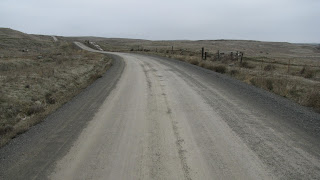Preached on Sunday, March 10, 2013
Scripture readings: Mark
14:1-11; Mark 9:43-48
Sometimes I think there are only two basic words in
the whole universe. These two words form
a pair of opposites. One of the pair is surely one of the first words that a
baby learns to use, after mama and dada.
 |
| Pictures Taken around Palouse Falls, Near Washtucna, WA |
Those two words are “yes” and “no”.
I have been told that most babies learn to use the
word “no” before “yes”. I wouldn’t be surprised. I like it when people say
“yes” to me, but I notice more when they say “no”. Does that make me “no”
focused, instead of “yes” focused? I am not sure that this is the better side
of me.
Let me give you an example from the Bible, of what I
mean by being “no” focused or “yes” focused. Mark gives us a demonstration in
the story of the woman who anointed Jesus.
This anointing thing happened to Jesus more than once.
It happened at least twice that I can count. (See Luke 7:36-50, and a bit
fuller telling of Mark’s story in John 12:1-8.)
Anointing was a special honor given in the ancient
world, and particularly notable people (like prophets and kings) were called
“the anointed”. One of the titles for King, in ancient Israel, was
“Anointed One”. That is what Messiah and Christ mean.
Who are the “no” focused people in this anointing
story? Jesus always seems to have an audience of people standing by to watch.
Some of them watched because they loved him and others watched in order to spy,
and criticize, and report to the authorities.
Some of the audience that day were the “no” focused
people. It looks like one of the disciples had become “no” focused”. Jesus’
acceptance of the woman, and what she did, seems to have moved Judas to say
“no” and betray him.
Who are the “yes–focused” people? They were Jesus and
the woman.
What was the “no” faction focused on? It was the
tremendous wastefulness of a good thing. The perfumed oil was worth more than a
year’s wages. That was the difference between rich and poor in those days.
Who was this woman, who owned such an expensive jar
of perfume? Or how did she come by such a treasure? Was it a treasure to her?
 Jesus saw beneath the surface of the anger of the
“no” sayers. He told them that they would always be able to care for the poor,
because he saw that they weren’t really thinking about the poor at all. They
were judging the woman, and judging him, and it was a judgment that came from
angry hearts that simply wanted to find something wrong and to get mad at
whatever it was.
Jesus saw beneath the surface of the anger of the
“no” sayers. He told them that they would always be able to care for the poor,
because he saw that they weren’t really thinking about the poor at all. They
were judging the woman, and judging him, and it was a judgment that came from
angry hearts that simply wanted to find something wrong and to get mad at
whatever it was.
They could have looked at what the woman did and seen
devotion, thankfulness, and love, and said “yes” to it. Instead they found
something to say “no” to. For the angry people, the money was an excuse for the
thrill of an anger that was more precious to them than the anointing oil and
more precious than the woman’s thankfulness and her devotion to Jesus.
It is a test of priorities, isn’t it? Which is
bigger, which is more important: anger or thankfulness?
The real scandal is not mentioned, which is the simple
fact that this woman touched Jesus, and Jesus did not scold the woman for
touching him. In that time and place, men and women were not supposed to touch,
unless they were married or related. This goes unmentioned in the story because
everybody knew this, and Mark and the other gospel writers were too polite to
mention it directly.
It was not a matter of what we would call a breach of
courtesy or bad manners. In that time and place, the woman’s action crossed the
line of what we would call “lewd and indecent behavior.” It was that bad.
The onlookers saw the passion of her thankfulness.
They were offended and outraged, and they said “no” to it.
The woman knew the value of the perfume she was
wasting, and she knew her people’s code of behavior. She heard the word “no”
shouting inside her head, but she also heard a “yes” that was shouting louder
than the “no”, and she had to say “yes.”
She had to anoint Jesus as her way of saying what
Jesus was to her. This is probably why it happened to Jesus more than once.
She did this because she had watched and listened to
Jesus, and everything in him said “yes” to her. And when it came down to the
test, and she said her “yes” with trembling hands and knees, Jesus said “yes”
again by honoring her gift.
The enemies of Jesus had a religion of saying “no”.
Jesus brought a spirit of saying “yes”.

But as soon as I say this, I think how easy it is to
take this the wrong way. People who belong to Jesus are not people who say
“yes” to everything that comes their way. The people who know Jesus are the
people who say “yes” to all of God’s “yes’s” and “no” to God’s “no’s”. But God
is not a God of “no’s”. God is a God of “yes’s”.
It’s like in the Garden of Eden. Our first parents
lived in a paradise on earth. The world was full of wonderful things: full of
wonderful things to do, and see, and smell and eat. They had thousands of
wonderful choices, thousands of wonderful ways to say “yes” to the thousands of
ways that God said “yes” to them.
And they had one “no.” There was only one thing they
were told not to do.
Now tell a child that there is only one thing that
you don’t want him or her to do…and what will that child think of next? But that is because of what human nature has
become since human nature was changed by the first sin. It was the Devil who
got Adam and Eve “no” focused, and we have been hooked on the “no” ever
since.
We are hooked on the “no’s”. Sometimes we show how much
we love the word “no” by saying “yes” to what God says “no” to. We think that
what ever God says “no” to must be so good that we must have it. We must do it.
We are drawn to God’s “no” like a moth is drawn to a flame. When we do this we
show that we completely misunderstand who God is.
Or we fall the other way. We go overboard on the
other side, like the Pharisees and the enemies of Jesus. They thought that
God’s most important word was “no”. And so they said “no” as often as they
could. They were in love with the word “no”. It gave them power and control
just like God, as they imagined him to be. By doing this they showed how much
they had completely misunderstood who God is.

We can’t do this. You can’t do that. Not that way!
Who do you think you are?
Let me give you an example of “no” saying in one
church I served. In those days when I was still a young adult I was trying to
start a “young adults” fellowship in my church.
There was a leader who came up to me and warned me
that, if we had a group just for young adults, they might want to do things the
church would not approve of. For instance, they might want to have a dance in the
church building. Dancing in the church was not allowed.
I said, “Well, if we do have a dance, we can do it
somewhere else.” And she said, “But if you meet somewhere else, how will we
know what you’re doing?” There is a “no” saying frame of mind.
The “no” sayers thought they were protecting
standards of goodness and holiness. They may have started out that way, but
along the way they had corrupted the word “no” into a way of thinking that made
them hate Jesus himself. And, by hating Jesus, they hated God, as God truly is.
By focusing their goodness and holiness on the word “no” they no longer
recognized what was truly good and holy when they saw it.
Jesus is God saying “Yes”. Paul says, “All the
promises of God find their yes in him.” (2 Corinthians 2:20 RSV) Jesus lived
out the “yes” of God to everyone who came to him. He always said “no” to sin,
but he always said “yes” to sinners.
The enemies of Jesus had a spirit of “no” and Jesus
had the spirit of “yes”, and yet Jesus called his people to a higher standard
than the “no” sayers did. Jesus said, “Unless your righteousness exceeds that
of the scribes and Pharisees, you shall never enter the kingdom of heaven.”
(Matthew 5:20 RSV)
When Jesus says, “If your hand causes you to sin, cut
it off….” (Mark 9:43) That sounds like a great big way of saying “no!” But it isn’t.
It isn’t farfetched to ask what you would choose if
you had an infected finger, and the doctor tells you, “We cannot heal your
finger. We must remove it or the infection will spread to the rest of your
body, and you will die in great pain.”
 So you choose to have your finger cut off. But the
infection is already in your hand, and the doctor says, “If you do not let us
cut off your hand you will die.”
So you choose to have your finger cut off. But the
infection is already in your hand, and the doctor says, “If you do not let us
cut off your hand you will die.”
Now, if you say, “I love life, but I will not part
with my hand,” would you be telling the truth? Suppose that you have people who
love you, whom you love in return, and if you keep your hand you will have to
leave them sooner than later. Do you really love life, and do you really love
them, if you choose your hand over them?
It should be an easy choice, but it’s not. Our hands
are our friends.
Most problems with sin will not be solved by surgery.
The problem is not in the hand, or the eye, or the foot. The problem is in the
mind and the heart. But the decisions are just as tough as surgery.
It’s should be easy to make a surgical choice in some
things when they are the big things; like addictions, or an issue of morality
or ethics, or bad life styles. Saying “yes” to that one thing, is clearly like
saying “yes” to that infected hand, and you basically say “no” to everything
else: to those who have always loved you and were with you from the beginning, to
your health, to your home, to your work, to something or to someone you should
treasure.
And you are guilty of robbery, because you have
robbed those who love you of the treasure that is you. You rob them of the
person they have known and loved, the person they thought they could count on.
The only healing surgery is a continual, humiliating
surrender. It is surrender to God. It is surrender to the people who know when you
are wrong. It is surrender to the people who are prepared to help you change,
but only if you let them.
This surgery of surrender is not just for the big
things. There are people who choose to say “no” in petty ways. There are people
who chose to be hard. There are people who choose to be snipers and gossips.
There are people who never face what needs to be faced. There are people who
lie about who they are and about their intentions toward others. There are
people who use others.
If these people changed, they wouldn’t know who they
were anymore. They wouldn’t know how to function like normal people. It would
be scary and humiliating, to admit that you don’t know how to live as a safe
person, a person who can be counted on.
 |
| Marmot on the Rocks |
There are so many seemingly innocent ways of life
that we hate to say not to. It is a painful surrender to say “no” to being in
control; “no” to wanting to know what is going on; “no” to the things that form
the comfortable nest in which we have invested so much of our time, and hopes,
and energy for so long. It is a painful surrender to say “no” to the business
of living in the ways that have been so familiar and satisfying.
The world, as we know it, changes and grows old. Every
world will grow old except for the new world of the kingdom of God
where the greatest word will be “yes”.
It is a real surrender, to the purpose of God and for
the sake of others, when a person must say “no” to something they think they
cannot live without. There are times when a person must say “no” in order to
say “yes” to a new world and the kingdom
of God, in order to
“enter into life.”
Jesus tells us that this self-inflicted surgery,
without anesthesia, is for the purpose of entering life, entering the kingdom of God. The decision we make about this
life-altering spiritual surgery depends on who we really love, and how much we
love them.
There is really a lot in common between the picture
of cutting off a hand for the kingdom, and the woman pouring out that bottle of
perfume that was worth a year’s work in someone’s life. Both sacrifices were
costly and they required a passionate surrender. It is a passionate sacrifice,
a passionate gift. It is passion itself.
How much are we really guided by great and good passions?
If we believe in the sanctity of human life, how will we relate to the lives of
the people around us when they need us or when they say “no” to us?
If we believe in the sanctity of the family, how will
we relate to the members of our own family? Will we respect them and use all
our wits to live wisely with them.
If we believe in the sanctity of the body of Christ,
the Church, how will we relate to those who come to us, or those who do not
know that Jesus wants to speak to them through our voice? Will we love them for
their own sake, and for God’s sake, or mostly for what they will do for us?
Most of the reason for my family leaving their closest time to the church was
the sense that the church wanted them for what they were willing to do, not for
themselves.
 |
| See the Marmot on the Rock in the Left Foreground |
If you believe that you are created by God for a
purpose, how will you choose to live that one life which God has given to you?
How will you show your great love and passion for that?
Jesus is the great “Yes!” And that is what the good news is about. The
people who were desperate to hear some “yes” from God, found it in Jesus. They
flocked to him, and they showed their passion for Jesus in many different ways.
Jesus had us imagine (for imagination’s sake) that
the sin (the infection) that stands between us and life (that stands between us
and the kingdom
of God) could be located
in a hand, or an eye, or a foot. He had us imagine that this infection could be
surgically removed.
Jesus (and we as well) know that this cannot be. What
Jesus did was to become that infected part for us. Paul says: “For our sake God
made him to be sin who knew no sin, so that in him we might become the
righteousness of God.” (2 Corinthians 5:21)
Jesus was cut off from life, on the cross, to give us
a new freedom in our heart and mind: the freedom of forgiveness. Jesus gave us
the freedom that comes from God saying “yes” to us. Jesus is God giving us the
freedom of a new life in a new world.
Jesus lived, and died, and rose again passionately
for all people, and he did it passionately for just you. So we can focus on the
“Yes” of his love for us. So we can focus on being God’s “Yes” to a barren
world. Then we will be guided by the great, good passions that he plants in our
hearts.





